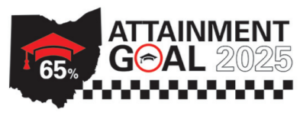As the legislative session moves forward, many states have passed bills that will help to improve data systems and expand opportunities for learners.
Data System Improvements
Recently, data system improvements have been a focus of policy efforts in order to better support and hold accountable districts, institutions and programs, as well as allow learners, employers and policymakers to stay informed.
In the District of Columbia, the Council of the District of Columbia passed the Workforce Development Systems Transparency Act, which requires the District’s Workforce Investment Council to detail the District’s spending on adult education programs and workforce development education programs, as well as the performance outcomes of those programs, in a public report. The performance outcomes information will include employment rates, median earnings, credential attainment, and completion rates. The first version of the report will include information about programs managed by seven DC entities, such as the Department of Employment Resources, and by 2020 programs administered by an additional 14 entities will be included in the report.
In Texas, the University of Texas System launched an updated version of the database Seek UT to include University of Texas graduates’ earnings in the hopes of showing the benefits of higher education. The database utilizes Census Bureau data and provides information on student’s median incomes for every program offered after one, five, and ten years after graduating, the percentage of students who went on to continue their education and the median loan debt for different programs. The database is viewed as a “work-around” of the current ban on a federal database that would link student-level education data to national employment data.
Community Colleges Offer Bachelor’s Degrees
Elsewhere, states are passing laws to expand community college offerings and to address the shortage of skilled employees.
In Colorado, a bill that allows Colorado’s community colleges to offer bachelor’s degrees in nursing recently became law. The bill was passed without the governor’s signature or veto. In a letter explaining this decision, Governor Hickenlooper cited concerns over limited stakeholder engagement by the bill’s proponents and potential conflicts between the various agencies that oversee higher education in the state.
In response to these concerns, the letter directs the Colorado Commission on Higher Education (CCHE) to convene stakeholders to determine how to best align programs with industry trends. This law was allowed to pass in response to a severe shortage of nurses in Colorado and after reports that more nursing disciplines require a masters or doctoral degree than in previous years.
 Similarly, in Ohio, three community colleges received state approval to offer bachelor’s degrees in microelectronic manufacturing, aviation, unmanned aerial systems, land surveying and culinary and food science. These programs still need to receive accreditation from the Higher Learning Commission before the community colleges can offer the degrees.
Similarly, in Ohio, three community colleges received state approval to offer bachelor’s degrees in microelectronic manufacturing, aviation, unmanned aerial systems, land surveying and culinary and food science. These programs still need to receive accreditation from the Higher Learning Commission before the community colleges can offer the degrees.
Once accredited, these programs will help to achieve Ohio Governor Kasich’s goal to have 65 percent of the state’s workforce earn an industry recognized credential or degree by 2025. Governor Kasich has already showcased his support for community colleges to offer baccalaureates through the introduction and passage of legislation that supports this.
Brianna McCain, Policy Associate
